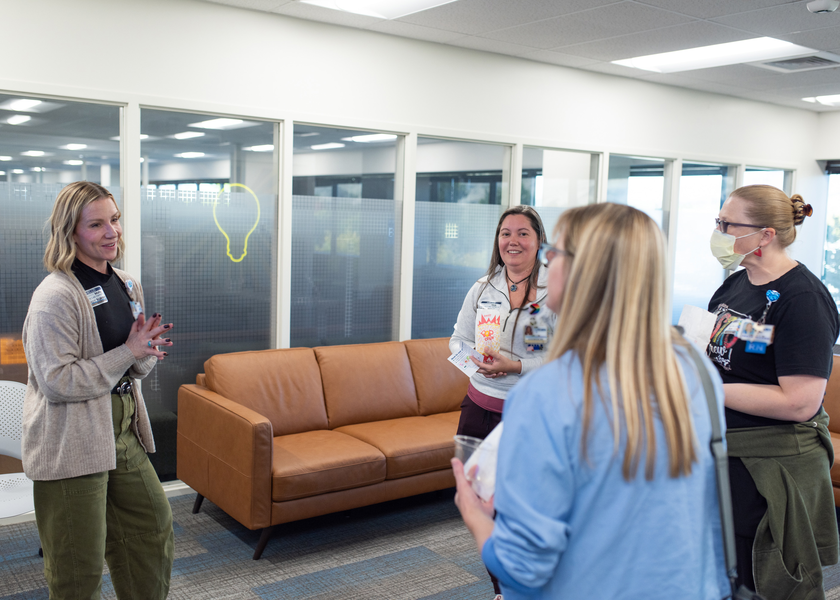
Your Partner in Health
At St. Luke’s, we’re more than health care providers — we’re your neighbors, advocates, and partners in community health. Our connection to the communities we serve in Idaho and Eastern Oregon drives our commitment to earning your trust in everything we do.

Your Partner in Health
At St. Luke’s, we’re more than health care providers — we’re your neighbors, advocates, and partners in community health. Our connection to the communities we serve in Idaho and Eastern Oregon drives our commitment to earning your trust in everything we do.
Care Options
Need care today or just planning ahead? Enter your location to see nearby options.
Not sure where to go?
Explore the different types of care available to find what’s right for you.
On-Demand Virtual Care
Talk to a St. Luke's provider every day from the comfort of your home on your computer or smartphone. Learn more
Virtual Care ServiceAvailable7 a.m. – 10 p.m. todayUrgent Care
Urgent care centers provide walk-in treatment for non-life-threatening illnesses and injuries that require prompt attention.
to see Urgent Care locations near youEmergency Care
24/7For life-threatening conditions, call 911 or go directly to the nearest Emergency Department.
to see Emergency Care locations near youIn-Person Care
In-person visits ensure thorough assessments and direct interaction with your health care provider. Schedule an appointment with one of our primary care providers for illness or injuries.
Not sure where to go?
Explore the different types of care available to find what’s right for you.
Find What You Need
Use these tools to take your next step with St. Luke's.

I am...
Tell us who you are to display relevant links.
What's New at St. Luke's

Patient Care Emerging Technologies Lab helps St. Luke’s stay on the cutting edge — with smart decisions
The lab opened in October 2025 with the mission of creating a space where St. Luke’s staff members could evaluate new technology and explore different workplace solutions.
News & Announcements Your questions answered on current pregnancy, childhood health topics
The St. Luke’s Children’s Hospital team has recently received an increased number of questions from parents and caregivers about how to best protect the health of kids.
News & Announcements Believe it: Hyperbaric therapy uses unique treatment to heal St. Luke’s patients
Hyperbaric oxygen therapy allows patients to breathe medical-grade oxygen while inside a pressurized chamber.










